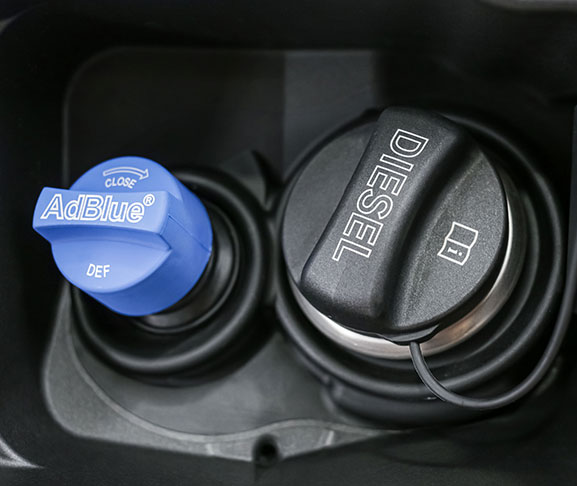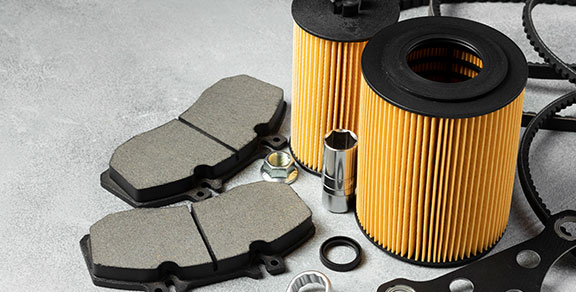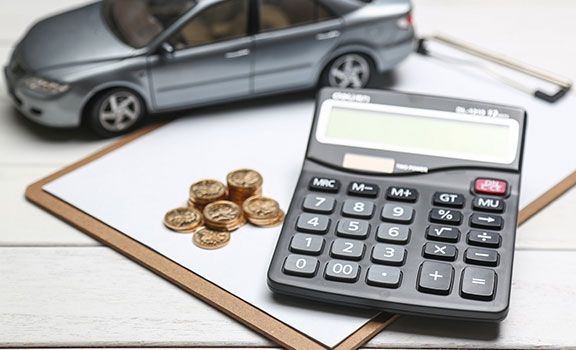Why make a Claim?
1,000,000 Could Claim
Between October 2014 and June 2023, more than 500,000 new Jaguar and Land Rover vehicles were sold or leased in the UK. Owners of these vehicles, whether they acquired them new or as pre-owned, are eligible to file a claim, regardless of their current ownership status. This implies that there is a potential pool of over 1 million individuals who can assert their claims.
No Risk and No Cost
This collective claim will be presented to Jaguar Land Rover (JLR) as a group action, with numerous similar claims being decided collectively. Legal representation will operate on a "no win - no fee" basis, meaning claimants won't incur any upfront costs. The legal fees will be covered from the compensation recovered from JLR.
Top Legal Experts
The group of claimants will be represented by a distinguished law firm based in London, known for its expertise in handling and successfully resolving group action cases against major multinational corporations. This legal expertise enhances the likelihood of securing compensation for claimants.
What Have Range Rover Done Wrong?
Allegations have arisen suggesting that certain components installed in Range Rover's may not have been suitable for their intended purposes, resulting in safety concerns during regular driving conditions and performance issues for drivers. Jaguar Land Rover (the manufacturers of Range Rover's) have been accused that Range Rover (L405), Range Rover Sport (L494), Range Rover Evoque (L538 and L551) have had defective components fitted in the engines.
In particular, the Diesel Particulate Filter (DPF) systems are under scrutiny. When functioning correctly, these systems are designed to cleanse and eliminate soot and pollutants from diesel engines. They are supposed to be self-cleaning, ensuring that the vehicle remains clean and safe to operate by continuously carrying out this process. However, DPFs have exhibited malfunctions, with some becoming clogged or reaching full capacity. These issues have caused vehicles to enter a "limp mode," rendering them unfit for their intended purposes.

Understanding Range Rover Diesel Particulate Filter Claims
Range Rover vehicles have long been known for their luxury, performance, and off-road capabilities. However, recent issues with the Diesel Particulate Filter (DPF) system in Range Rovers have raised concerns among car owners and lessees. In this blog, we will explore the range of issues surrounding Range Rover diesel particulate filter claims, including the role of the DPF, common problems, legal consequences, case studies, Range Rover's response, and what this means for owners and lessees of diesel Range Rovers.
Range Rover DPF Scandal: Key Statistics
| Statistic | Source |
|---|---|
| Range Rover models were among the Jaguar Land Rover (JLR) vehicles affected by potential DPF issues | BBC News |
| The affected Range Rover models included the Range Rover Evoque and Range Rover Sport diesel variants | Which? |
| JLR initiated a voluntary recall of 44,000 cars in the UK, including Range Rover models, to update the emissions control software related to DPF issues | Autocar |
| The recall affected Range Rover and other JLR models with 2.0-liter diesel engines, produced between 2016 and 2019 | Automotive News Europe |
| JLR set aside £7 million ($9.2 million) to cover the costs related to the DPF issues for all affected models, including Range Rover | The Guardian |
| Range Rover owners were among the 58,000 JLR vehicle owners in the UK eligible to join the potential collective legal action over DPF problems | The Times |
| JLR's CEO, Thierry Bolloré, acknowledged the DPF issues and pledged to take necessary actions to address customer concerns for all affected brands, including Range Rover | Jaguar Land Rover Newsroom |
| The potential compensation for affected Range Rover owners in the UK could range from £3,000 to £10,000 per vehicle, depending on the case | The Telegraph |
| Sales of Range Rover models in the UK dropped by 5.2% in the year following the emergence of the DPF issues | Society of Motor Manufacturers and Traders (SMMT) |
Please note that these statistics were sourced from various news outlets and may be subject to updates as the Range Rover DPF scandal develops.
Range Rover Diesel Particulate Filter (DPF) Claims Explained
The Diesel Particulate Filter, or DPF, is a crucial component of the exhaust system in diesel vehicles, including Range Rovers. Its main purpose is to reduce diesel emissions, including soot and nox, by trapping and burning particulate matter.
The Role of the Diesel Particulate Filter (DPF) in Range Rovers
The DPF system in Range Rovers plays a vital role in reducing harmful emissions. However, defective components within the system can present challenges for drivers, leading to engine wear issues, oil dilution, blocked DPF, warning light activation, and even limp mode issues. Resolving Range Rover DPF problems requires technical evidence to support the claim. Additionally, issues with DPF regeneration have resulted in class action claims against Range Rover, highlighting the seriousness of the problem.
Common Issues with Range Rover Diesel Particulate Filters
Owners and lessees of Range Rovers have faced deception from dealerships when it comes to DPF issues. Frequent servicing for DPF problems can be an indicator of defective components within the filter system. Amber warning light activation is another common issue reported by owners, indicating problems with the DPF system. These problems have been reported in various models, including the Range Rover Sport and Evoque, affecting both new car owners and those who have had their vehicles for years.
What have Range Rover Done Wrong?
The safety and performance of Range Rovers have been called into question due to allegations that certain components installed in the vehicles may not be suitable for their intended purposes. These issues have reportedly caused problems for drivers during regular driving conditions, raising concerns about the safety of these luxury vehicles. Jaguar Land Rover, the manufacturer of Range Rovers, has been accused of fitting defective components in the engines of various models, including the Range Rover (L405), Range Rover Sport (L494), and Range Rover Evoque (L538 and L551). The company is currently facing legal action and is working to address these concerns to ensure the safety and satisfaction of its customers.
The Diesel Particulate Filter (DPF) system is a major concern for diesel engine owners. DPFs are designed to clean and eliminate soot and pollutants from diesel engines, with the aim of keeping the vehicle clean and safe to operate continuously. However, there have been instances where DPFs have become clogged or reached full capacity, leading to malfunctions in the engine and causing it to enter "limp mode". When this occurs, the vehicle becomes unsuitable for its intended purposes. It is important for diesel engine owners to regularly maintain their DPF systems by following manufacturers' recommendations and taking care not to overload the filter with excessive particulate matter. Proper care will ensure that your vehicle remains operational while minimising environmental damage caused by harmful pollutants.
Potential Legal Consequences for Range Rover
The range of legal consequences for Range Rover includes case studies of diesel particulate filter claims, legal challenges faced by owners, high court rulings, compensation claimants, and backlash from owners leading to legal action.
Case Studies of Diesel Particulate Filter Claims
Diesel particulate filter claims against Range Rover have legal basis for compensation, as seen in case studies from Wales, England, and Australia. The high court of England has ruled in favour of claimants, recognising the issues with the DPF system. These case studies highlight the impact of diesel particulate filter problems on owners.
Range Rover's Response to the Alleged Claims
Range Rover has responded to the alleged claims of DPF problems with technical evidence, addressing the issues faced by owners. However, owners have sought legal counsel to address these problems, indicating dissatisfaction with the response from Range Rover. The car manufacturer has faced challenges in resolving diesel particulate filter problems, leading to legal action from owners.

Impact on Current Owners of Diesel Range Rovers
Current owners of diesel Range Rovers face challenges due to diesel particulate filter issues, including warning light activation, engine wear, frequent servicing needs, and concerns about the reliability of diesel vehicles. These problems impact owners' experiences and raise questions about the long-term reliability of diesel range rovers.
Advice for those Leasing a Diesel Range Rover
Lessees of diesel Range Rovers may also experience issues related to diesel particulate filters, potentially leading to legal action against the manufacturer. Problems with the DPF system can impact the leasing experience, performance, and maintenance of diesel range rover cars. Seeking legal counsel, such as Milberg London, can provide lessees with guidance on addressing DPF problems.
How to Identify if your Vehicle is Affected?
For owners and lessees of diesel Range Rovers, it is crucial to identify if their vehicles are affected by diesel particulate filter issues. Recognising the symptoms of a faulty DPF, checking vehicle registration for recalls and technical updates, and understanding the steps to take if affected are essential.
What are the Symptoms of a Faulty Diesel Particulate Filter?
Symptoms of a faulty diesel particulate filter include warning light illumination due to soot accumulation, reduced engine performance and efficiency, increased fuel consumption and exhaust emissions, regeneration issues, and limp mode activation due to blocked filter.
How to Check your Vehicle Registration for DPF Issues?
To determine if your vehicle is affected by diesel particulate filter problems, verify if there are any outstanding technical updates, check for any diesel particulate filter recalls, confirm frequent servicing needs, identify limp mode issues, and assess oil dilution problems caused by the filter.
Steps to Take if you are Affected
If you are affected by diesel particulate filter problems in your Range Rover, it is important to take the necessary steps. This includes contacting Range Rover about the issue, seeking legal advice, and exploring preventive measures to avoid future problems.
Joining the Class Action Claim for Diesel Particulate Filter Claims
Seeking legal advice from law firms specialising in diesel emissions claims such as us can help owners and lessees assess legal action opportunities, understand class action processes, and discuss compensation options for blocked DPF and diesel emissions claims against Range Rover. You can simply fill in our form to start the process.
Are Diesel Particulate Filters Reliable in Newer Models?
Assessing the reliability of diesel particulate filters in newer models is essential, as car owners may encounter similar issues with DPF problems. Dealerships' deception regarding DPF system issues, challenges of regeneration, amber warning light issues, and car owners' experiences with new models should be taken into consideration.

What is a Range Rover DPF Claim?
A Range Rover DPF (Diesel Particulate Filter) claim refers to the process through which owners of specific Range Rover diesel models can seek redress or compensation for issues related to the DPF. These claims often arise due to malfunctioning or inefficient DPF systems that can lead to increased maintenance costs, reduced vehicle performance, or even non-compliance with emissions standards.
How Do I Know if My Range Rover is Eligible for a DPF Claim?
To determine if your Range Rover is eligible for a DPF claim, check the following criteria:
- Model and year of your Range Rover: Typically, certain diesel models are more prone to DPF issues.
- Symptoms of DPF problems: Reduced performance, frequent maintenance needs, or warning lights specific to DPF.
- Documentation: Service records indicating DPF-related repairs or maintenance.
- Emissions standards: Non-compliance reports or notices.
What Steps Should I Take to File a DPF Claim for My Range Rover?
For filing a DPF claim for your Range Rover:
- Gather evidence: Compile all relevant service records, repair bills, and diagnostics reports.
- Consult with a specialist: Seek advice from a legal or consumer rights expert specialising in automotive claims.
- File the claim: Submit your claim through the appropriate channels such us, which might be a legal representative, a consumer protection agency, or directly with the manufacturer.
- Follow-up: Stay in contact with the entity you filed your claim with for updates and further instructions.

Can I Claim Compensation for DPF Issues in My Range Rover?
Yes, you can claim compensation for DPF issues in your Range Rover. The compensation can cover:
- Repair costs: Expenses incurred for repairing or replacing the DPF.
- Loss of vehicle use: If the vehicle was unusable for a period due to DPF issues.
- Diminished value: If DPF problems have permanently affected the vehicle's value.
What are the Common Symptoms of DPF Problems in Range Rovers?
Common symptoms of DPF problems in Range Rovers include:
- Reduced engine performance: Loss of power or sluggish response.
- Increased fuel consumption: Noticing your vehicle uses more fuel than usual.
- Warning lights: The DPF warning light on the dashboard illuminating.
- Unusual exhaust smoke: Excessive or oddly coloured smoke from the exhaust.

